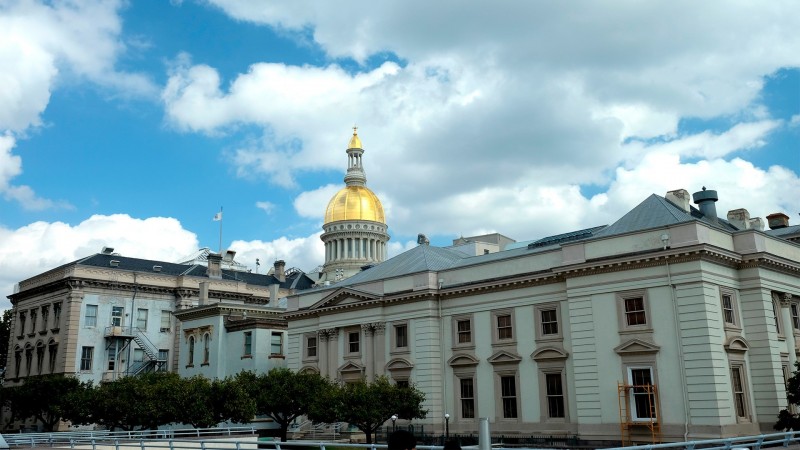The Atlantic City casino PILOT bill, which seeks to lower what casinos would have to pay in lieu of property taxes for five years, is now set to be voted on by both the full New Jersey Assembly and Senate next Monday.
A5587 was amended and then passed by the Assembly Appropriations Committee on Monday, in order to match the Senate version of the bill (S4007), reports The Press of Atlantic City. The Senate version passed that house’s budget committee the Monday before.
Both versions decrease the basic PILOT payment for all nine casino properties in Atlantic City to $110 million in 2022. This is lower than the about $165 million they likely would have had to pay should the original PILOT bill continue. According to the Office of Legislative Services, the new law would save gambling venues between $30 to $50 million a year for the remaining years.
The Assembly is now set to meet at 1 p.m. on Monday, while the Senate will do so at 2 p.m., also on Monday. Should the bill be passed by both houses, it would then go to Gov. Phil Murphy for his signature.
The bill must be signed by Jan. 11, when the new 2022 to 2024 Legislative session begins. According to local media, sources familiar with the matter and in the administration have said the amendments are being pushed by the governor himself, meaning he is likely to sign.
A series of changes were made to the Assembly version. Among them are a lower basic PILOT payment and a requirement that the casinos together pay an additional $5 million per year, from 2024 to 2026.
In comparison, the original Assembly version, which was introduced back in May by Assemblyman John Armato, D-Atlantic, set the basic PILOT at $125 million, while also requiring each casino to pay an additional $5 million annually.
Several lawmakers who voted to pass the bills out of the Senate and Assembly budget and appropriations committees have, however, now reserved the right to change their vote at the full floor vote, further reports the previously cited news source.
Among them is Sen. Troy Singleton, D-Burlington, who said he was disappointed at no representatives from the casino industry being present for the December 6 voting session. “I don’t like how this came about,” he stated, “but I will vote yes with grave reservations.”
However, after the Senate committee hearing, president of the Casino Association of New Jersey Joe Lupo said the trade group had submitted a position paper on S4007 and had been available to answer questions of the lawmakers, an availability apparently unknown to the committee. Lupo further said a representative had been in the audience for the Assembly committee hearing.
The bill, which seeks to remove sports and internet gaming revenues from the calculation of what casinos owe in-lieu-of property taxes, has received the support of Local 54 of the Unite Here union, the main casino workers’ union. Bob McDevitt, head of the union, endorsed the legislation, describing it as necessary to prevent hundreds of workers from losing their jobs.
But the main act of support towards the bill was state Senate President Steve Sweeney’s warning earlier this month that, should the new PILOT not be passed, four of the city’s nine casinos would likely close. The venues have not been named, and this claim has been protested by certain parties since, as no proof has yet been provided.
“I’m very concerned about any casino closures. I agree with the Senate president that, as Atlantic City goes, that’s how South Jersey goes,” State Sen. Michael Testa, R-Cape May, Cumberland, Atlantic said. “But I would like to ask people who have skin in the game different questions so we can properly assess what is going on in Atlantic City.”
The Senator abstained in committee, claiming he wanted more information before voting on the floor. “So I really want to know, not just for those four casinos, but the industry as a whole how they are doing? How is it trending?” he added. “If they are going to be asking for changes in a deal they made, they have got to be transparent.”
Casino profits and revenue in Atlantic City have been significantly up this year, as the New Jersey industry rebounds from the pandemic. Some venues are even reportedly doing better than they did during the pre-pandemic year of 2019.
The first version of the PILOT bill was passed five years ago, during a time period in which Atlantic City was reeling from the closure of five of its 12 casinos. Casinos successfully appealed their property tax assessments year after year, which blew holes in Atlantic City’s budget. In return for agreeing not to appeal, financial relief and the certainty of knowing what their property tax obligation would be for years were offered.



